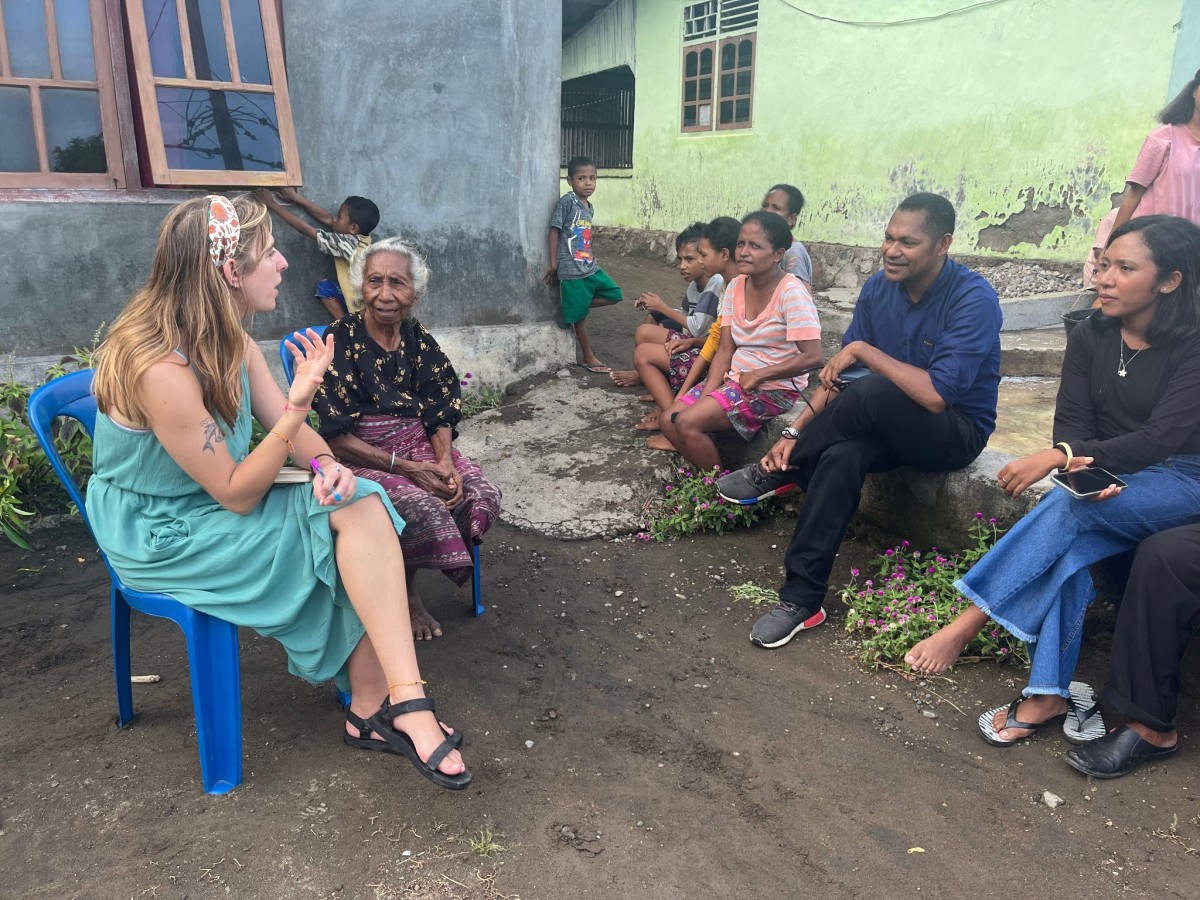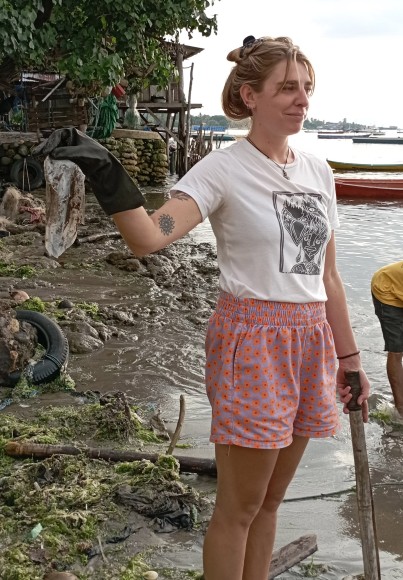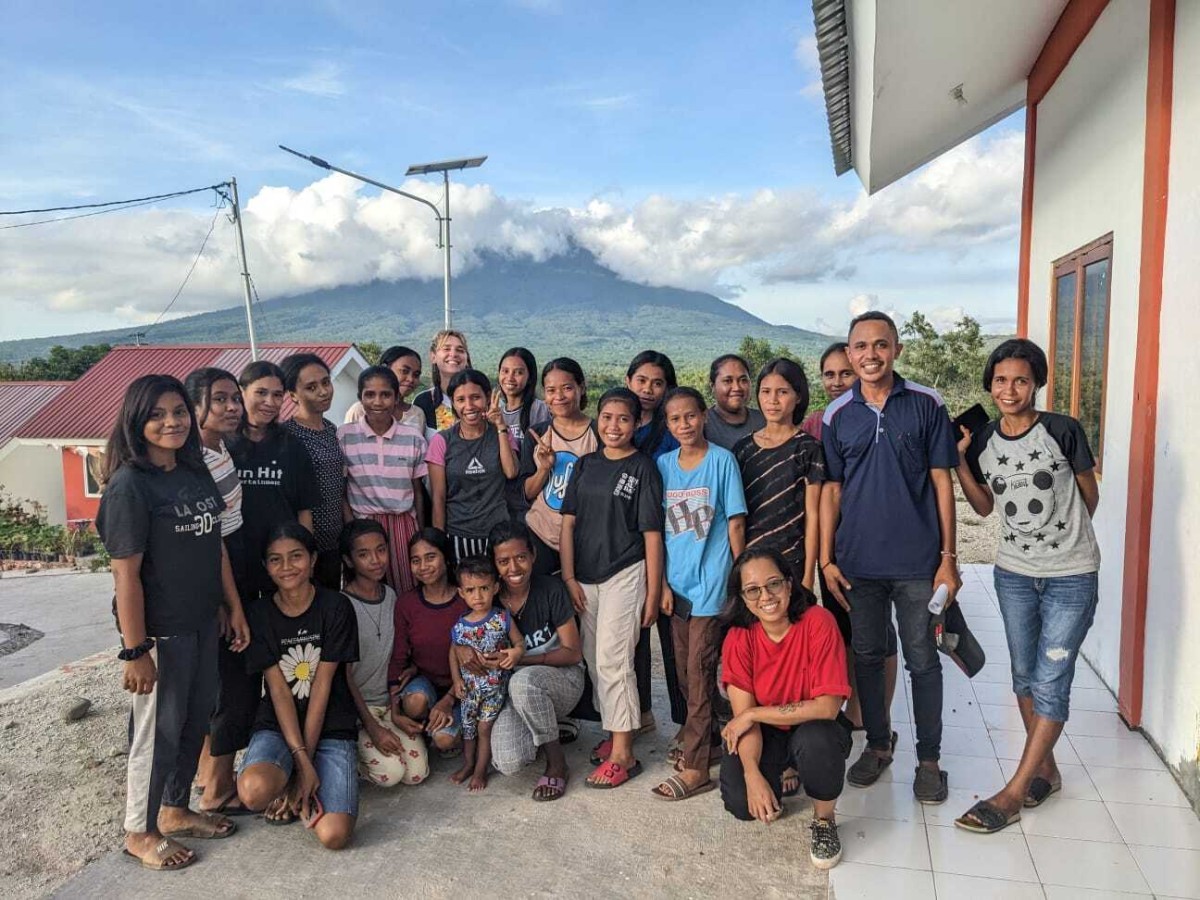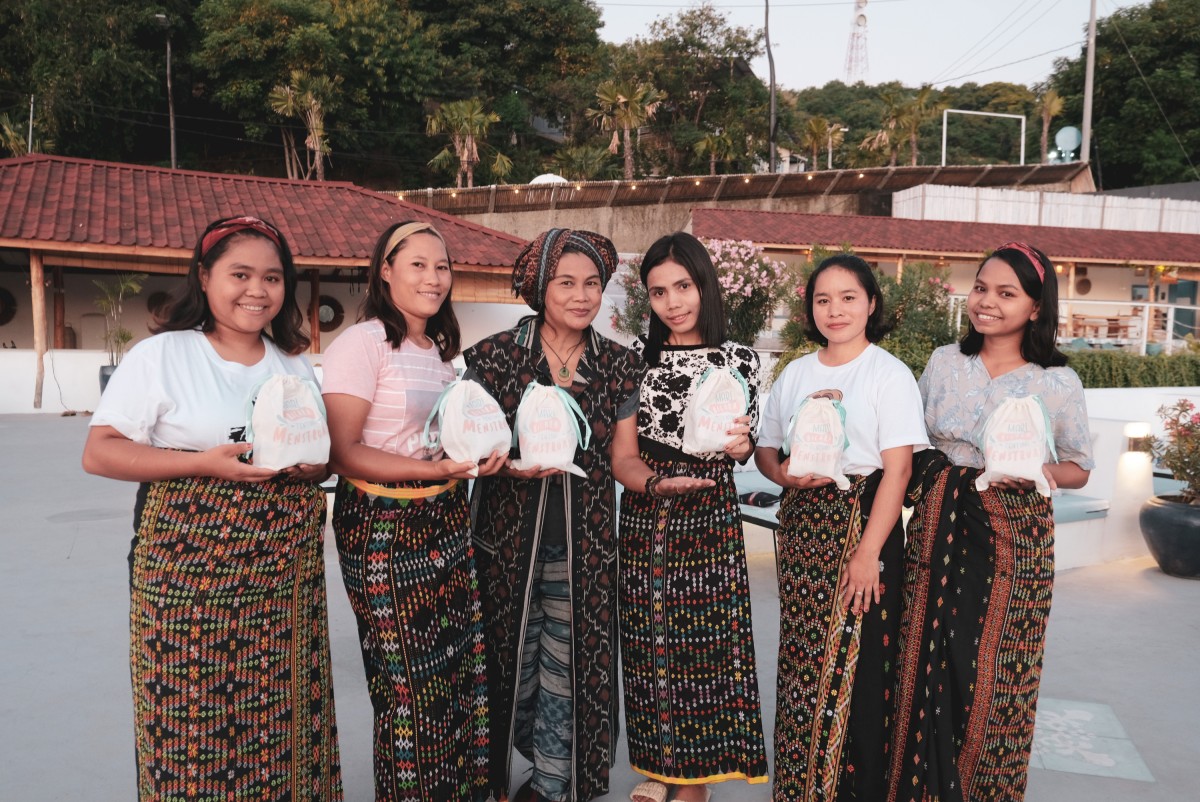So much more than a biological process: menstruation in times of climate change in Indonesia
Fien de Ridder (26) is a master's student in cultural anthropology at Utrecht University. For the past three months, supported by Simavi, she conducted research in Indonesia on women's resilience when it comes to menstruation and climate change.

May 28 is Menstrual Hygiene Day: why should there be a special day for that?
‘Talking about menstruation is very important. I don’t think we can reach the sustainable development goals like gender equality if we don’t pay proper attention to menstrual health. And not only in countries on the other side of the world, but also here in the Netherlands. Because even though we hear more about issues like period poverty in the media, it is still a bit taboo. I had conversations with women in Indonesia that I never really had with my own girlfriends here. Asking for a tampon in a whisper, hiding it when walking to the toilet: I only now realize that I've often done that myself. And menstruation is so much more than just a biological process. It also tells all kinds of things about how women stand in society.'

You just returned from Indonesia, what did your research entail?
‘I focused my research on how women see and manage their period within their environment, especially how they navigate when this environment is unstable or changing. I have spoken to women who had to relocate or move their house because of the effects of climate change, such as rising sea levels or floods. But also, when water or electrical infrastructure fail or break, how do they deal with their menstruation? In various places in Indonesia, particularly in East Nusa Tenggara, Indonesia's second poorest province, I interviewed women and conducted group discussions.'
And what did you learn from that?
'That what is a problem in one place doesn't have to be one somewhere else. For example, a lack of water to manage your period didn’t turn out not to be such an issue in the areas where I did my research. And menstrual pads were often available. The problem was that they were of very poor quality, which led to irritations. And waste management was a big issue: there is really no such thing in Indonesia, so every month women face the problem of what to do with their used menstrual pads. Burying or burning them, throwing them in the river, flushing them down the toilet, all not ideal.'

Which story impressed you the most?
'I was visiting a family in a small village who had been forced to move because their house on the edge of the mangrove was at risk from sea level rise. This was a woman who lived there with her mother and two sisters, one of whom was living with disability. However, their new house a little further up the hill had no toilet or running water. So, they still went to their old house every time for that. I found it impressive how resilient they handled that situation.'
Can you give an example of a local solution?
'I also interned at Perfect Fit, a start-up in Bali on menstrual products that came out of a Simavi project. Among other things, they make reusable menstrual pads and washable menstrual underwear. That's really a very good option. That has to do with the fact that women in Indonesia wash their pads anyway before throwing them away. On the one hand because of hygiene, on the other hand because of the belief in spirits. Because of the blood, you would otherwise run the risk that it would haunt you. Moreover, because of the lack of waste services, it is also better for the environment.'

What will be your message to the world on Menstrual Health Day?
'In Indonesia I experienced how women really support each other. We can learn a lot from that openness and sisterhood in the Netherlands and other parts in the world. Especially when it comes to a subject like menstruation. Talk about it and don’t think it is only a problem in some other part of the world.'
Simavi and Perfect Fit
Perfect Fit is not only a business selling reusable sanitary pads and menstrual underwear in Indonesia, it’s also a locally led project of Simavi. Besides good and affordable menstrual products, people who menstruate also get knowledge and information. Because menstruation is a perfect starting point to talk about the body in general, women's rights, reproductive rights and the climate crisis.
Especially in Indonesia, where menstruation is still surrounded by many taboos and myths, it is important to be able to provide people who menstruate with this knowledge and emphasise that menstruation is a completely normal and biological process. Impact and education are at the heart of Perfect Fit, that works with more than 70 resellers who discuss menstrual health with the community and promote the use of reusable menstrual pads. Want to know more about Perfect Fit? Then also read the interview we had with co-founder Tungga Dewi.


